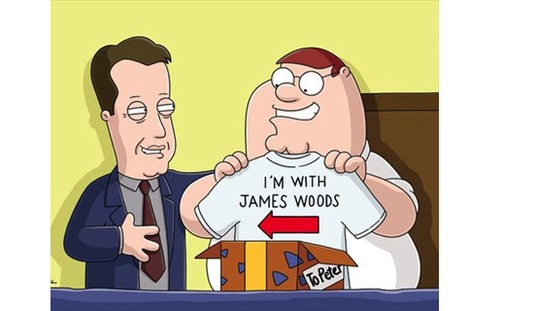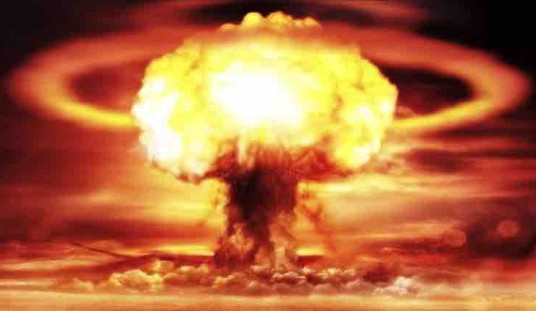Kayleigh McEnany, acting in her personal capacity, highlighted a portion of the Texas SCOTUS lawsuit against Wisconsin, Michigan, Pennsylvania and Georgia that cited an expert who claimed there was only a “one in a quadrillion to the 4th power” chance of Joe Biden winning all four of those states based on President Trump’s early lead on the morning of November 4.
This is quite a large number, if true:
Chances of Biden winning Pennsylvania, Michigan, Georgia, Wisconsin independently after @realDonaldTrump’s early lead is less than one in a quadrillion:
➡️ 1 in 1,000,000,000,000,000
Chances of him winning collectively is “one in a quadrillion to the 4th power”
Texas v. PA ⬇️ pic.twitter.com/tOlgPdai3r
— Kayleigh McEnany (@kayleighmcenany) December 9, 2020
But the analysis behind this statistic is being challenged as the “early lead” cited was only because these four states didn’t count their absentee and mail-in vote until after polls closed while states like Florida counted as they were received:
Respectfully, the word for this is "dumb."
THERE WAS NO EARLY LEAD. The votes were all cast before and on election day. Republican lawmakers CHOSE not to allow mail ballots, which were disproportionately Democratic, to be counted ahead of time. https://t.co/JWt1UoZP0g
— S.V. Dáte (@svdate) December 9, 2020
Stanford Professor Justin Ryan Grimmer explained further in this thread, ending with “I’m frankly embarrassed that such statistical incompetence would appear in such a high profile venue”:
The Texas AG is seeking to block electors from swing states, claiming that “given President Trump’s early lead…on November 4, 2020” the chance of Biden winning “is less than one in a quadrillion”. This claim is based on an embarrassing and basic error in statistical reasoning.
— justingrimmer (@justingrimmer) December 8, 2020
Recommended
The error is found in an expert declaration from Charles Cicchetti available here, https://t.co/7PuNx4ykZY starting on pg 20,(paras 7, 10-21). pic.twitter.com/AHSIS6Oy33
— justingrimmer (@justingrimmer) December 8, 2020
Cicchetti (and the AG’s) claim sounds like if you could rewind time and rerun the world 1 quadrillion times, we’d see this result only once. But Cicchetti never computes this probability and I’m not clear how he even could. Instead, he answers a different question.
— justingrimmer (@justingrimmer) December 8, 2020
Cicchetti’s probabilities rest on the assumptions that, in a fraud free world,Biden would have the same support as Clinton and early and late-tabulated votes are identical.If these assumptions are wrong, his probabilities are meaningless. And we know these assumptions are wrong.
— justingrimmer (@justingrimmer) December 8, 2020
Cicchetti effectively says, assuming Biden has the same support as Hillary, the chance of this result is very small.
— justingrimmer (@justingrimmer) December 8, 2020
But, of course, Biden is not the same as Hillary, these are different elections, and the electorate changes. So this probability teaches us very little about Biden’s true chance of victory.
— justingrimmer (@justingrimmer) December 8, 2020
He does the same basic analysis for early and late-tabulated votes: he shows that if we assume they are random samples from the population, then the chance of this result is small.
— justingrimmer (@justingrimmer) December 8, 2020
Of course early- and late-tabulated votes are not randomly sampled from the population of votes. The “blue shift” in late-counted votes is well documented (https://t.co/g1XrPaqXi9 and https://t.co/q8vWEteG04 ).
— justingrimmer (@justingrimmer) December 8, 2020
The conclusions in his analysis and the AG’s brief rely on an embarrassing confusion between the probability of something actually happening and the probability of it happening under an (implausible) assumption about the true state of the world.
— justingrimmer (@justingrimmer) December 8, 2020
Cicchetti never tries to compute the probability of Biden winning.Instead, he implausibly assumes Biden and Clinton have identical support or that early- and late-tabulated votes are randomly sampled.His probabilities teach us very little about the true chance of Biden winning.
— justingrimmer (@justingrimmer) December 8, 2020
So, no. Cicchetti doesn’t even provide the relevant probability. He doesn’t consider obvious alternative explanations. And he makes a basic error in interpretation.
— justingrimmer (@justingrimmer) December 8, 2020
I’m sure this claim will now become canon in election-conspiracy media, particularly given that Trump retweeted it. I’m frankly embarrassed that such statistical incompetence would appear in such a high profile venue.
— justingrimmer (@justingrimmer) December 8, 2020
And now we wait to see if SCOTUS will hear the case:
To the fans who e-mailed me overnight to not-so-politely insist that it takes only four #SCOTUS Justices to vote to take up Texas's election case, that's to grant certiorari to hear an appeal from a lower court. Texas is asking to file an *original* action. That takes five votes.
— Steve Vladeck (@steve_vladeck) December 9, 2020
***
























Join the conversation as a VIP Member